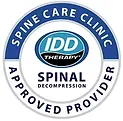Top Sources of Vitamin D for a Healthy Living
- David Ede
- Aug 25, 2025
- 4 min read
Vitamin D plays a crucial role in maintaining overall health. It supports bone strength, boosts the immune system, and helps regulate mood. However, many people do not get enough vitamin D, which can lead to various health issues. Fortunately, there are several natural vitamin D sources that can help you maintain optimal levels. This article explores these sources and offers practical advice on how to include them in your daily routine.
Understanding Natural Vitamin D Sources
Vitamin D is unique because your body can produce it when your skin is exposed to sunlight. This makes sunlight one of the most effective natural vitamin D sources. However, factors such as geographic location, skin tone, and lifestyle can affect how much vitamin D your body produces.
In addition to sunlight, certain foods naturally contain vitamin D. These foods can be a vital part of your diet, especially during months when sunlight exposure is limited. Incorporating these natural sources into your meals can help maintain healthy vitamin D levels year-round.

Best Natural Vitamin D Sources from Sunlight and Lifestyle
Sunlight is the primary natural source of vitamin D. When ultraviolet B (UVB) rays from the sun hit your skin, they trigger vitamin D synthesis. To maximise vitamin D production:
Spend 10 to 30 minutes in direct sunlight several times a week.
Expose your face, arms, and legs without sunscreen during this time.
Aim for midday sun exposure when UVB rays are strongest.
However, be cautious to avoid sunburn. People with darker skin may need longer exposure to produce the same amount of vitamin D as those with lighter skin. Additionally, during winter months or in northern latitudes, sunlight may not be sufficient, making dietary sources more important.
Other lifestyle tips to boost vitamin D naturally include:
Taking outdoor walks regularly.
Engaging in outdoor sports or activities.
Using UV lamps designed for vitamin D production if natural sunlight is unavailable.
What Food Is Highest in Vitamin D?
Certain foods are naturally rich in vitamin D and can help supplement your intake. Here are some of the top natural vitamin D sources from food:
Fatty Fish
Fatty fish like salmon, mackerel, sardines, and trout are among the richest sources. A 100g serving of cooked salmon can provide around 570 IU of vitamin D, which is more than half the recommended daily intake.
Cod Liver Oil
This supplement is extremely high in vitamin D. Just one teaspoon can provide over 400 IU. It also contains vitamin A and omega-3 fatty acids.
Egg Yolks
Eggs from chickens that have been free-range or fed vitamin D-enriched feed contain higher levels of vitamin D. One large egg yolk provides about 40 IU.
Mushrooms
Certain mushrooms, especially those exposed to UV light, can provide a good amount of vitamin D2. Wild mushrooms tend to have higher levels than commercially grown ones.
Fortified Foods
Many dairy products, plant-based milk alternatives, and cereals are fortified with vitamin D. Check labels to ensure they contain added vitamin D.
Including these foods regularly in your diet can help maintain healthy vitamin D levels, especially when sunlight exposure is limited.

How to Incorporate Natural Vitamin D Sources into Your Daily Routine
To benefit from natural vitamin D sources, consider these practical tips:
Plan meals around fatty fish at least twice a week. Try grilled salmon or sardine salads.
Add mushrooms to your dishes such as stir-fries, soups, or omelettes.
Use fortified milk or plant-based alternatives in your breakfast cereals or coffee.
Include eggs in your breakfast or baking recipes.
Spend time outdoors daily, even if it’s just a short walk during lunch breaks.
If you struggle to get enough vitamin D from sunlight and food, supplements can be an option. However, it’s best to consult a healthcare professional before starting any supplementation.
For more detailed information on sources of vitamin d, including recommended daily intakes and tips for different age groups, visit the linked resource.

Maintaining Healthy Vitamin D Levels for Long-Term Wellness
Vitamin D is essential for bone health, immune function, and overall well-being. Deficiency can lead to issues such as osteoporosis, increased infection risk, and fatigue. By regularly exposing yourself to sunlight and eating a diet rich in natural vitamin D sources, you can support your health effectively.
Remember to balance sun exposure with skin protection to reduce the risk of skin damage. Also, monitor your vitamin D status through regular health check-ups, especially if you have limited sun exposure or dietary restrictions.
Adopting these habits will help you enjoy the benefits of vitamin D naturally and maintain a healthy lifestyle.
By understanding and utilising natural vitamin D sources, you can take proactive steps towards better health. Whether through sunlight, diet, or a combination of both, maintaining adequate vitamin D levels is achievable and essential for your well-being.
Contact the clinic to speak to our Vitamin expert Dot on 01285 643080. She can offer a Vitamin D shot for those low in this Vitamin.





Comments